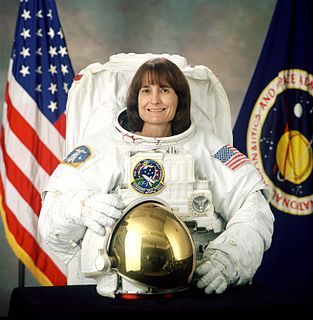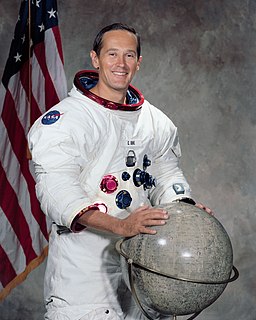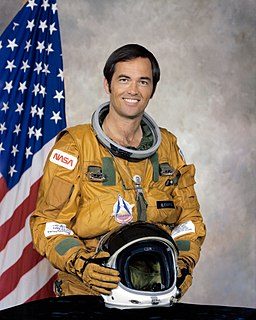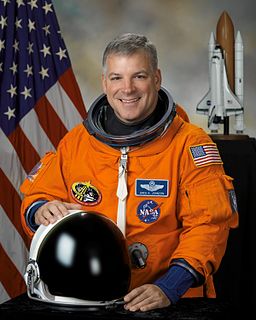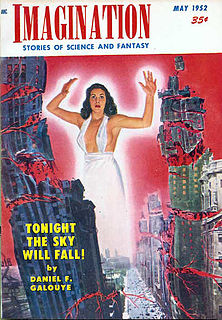A Quote by Buzz Aldrin
As a youngster, I read of Buck Rogers and Flash Gordon. As a student, I wrote English reports on science fiction. And as a fighter pilot, I observed the selection of the Mercury astronauts. All this was fascinating, but I really didn't think I would ever be a part of it. It was only when my good friend Ed White was selected as a Gemini astronaut that I decided to join NASA as part of the Apollo program.
Quote Topics
Apollo
Astronaut
Astronauts
Buck
Buck Rogers
Decided
English
Ever
Fascinating
Fiction
Fighter
Fighter Pilot
Flash
Flash Gordon
Friend
Gemini
Good
Good Friend
Gordon
Join
Mercury
NASA
Observed
Only
Part
Pilot
Program
Read
Really
Reports
Rogers
Science
Science Fiction
Selected
Selection
Student
Think
White
Would
Wrote
Youngster
Related Quotes
I grew up on the south side of Chicago in the 1960s, and I think there was a synchronicity of events that inspired me to be an astronaut, and, of course, the backdrop is nothing less than Mercury, Gemini, and Apollo. That was a time in our nation where we aspired to great things, and we achieved them.
I attended a big human space flight conference in Beijing and I was going as myself. And really, there weren't any NASA astronauts there, I was the only so-called American Astronaut there. We had astronauts from most of the other countries, certainly from Russia, from France, from Japan, several other countries, but it was a little bit odd because here we are at an international gathering of a lot of astronauts and I'm talking about somewhere upwards of 30 or so astronauts, and I'm the only American. And I wasn't even there in an official capacity.
I have always been intensely uncomfortable with the idea of a science fiction writer as prophet. Not that there haven't been science fiction writers who think of themselves as having some sort of prophetic role, but when I think of that, I always think of H.G. Wells - he would think of what was going to happen, and he would imagine how it would happen, and then he would create a fiction to illustrate the idea that he'd had. And no part of my process has ever resembled that at all.
We need to be very thoughtful about how we propose to spend the money that NASA does have for space exploration. And we need to be clear that there's the human spaceflight part of NASA, and there's the science space part of NASA, and there's also aeronautics. Those are all very different things that NASA does.

